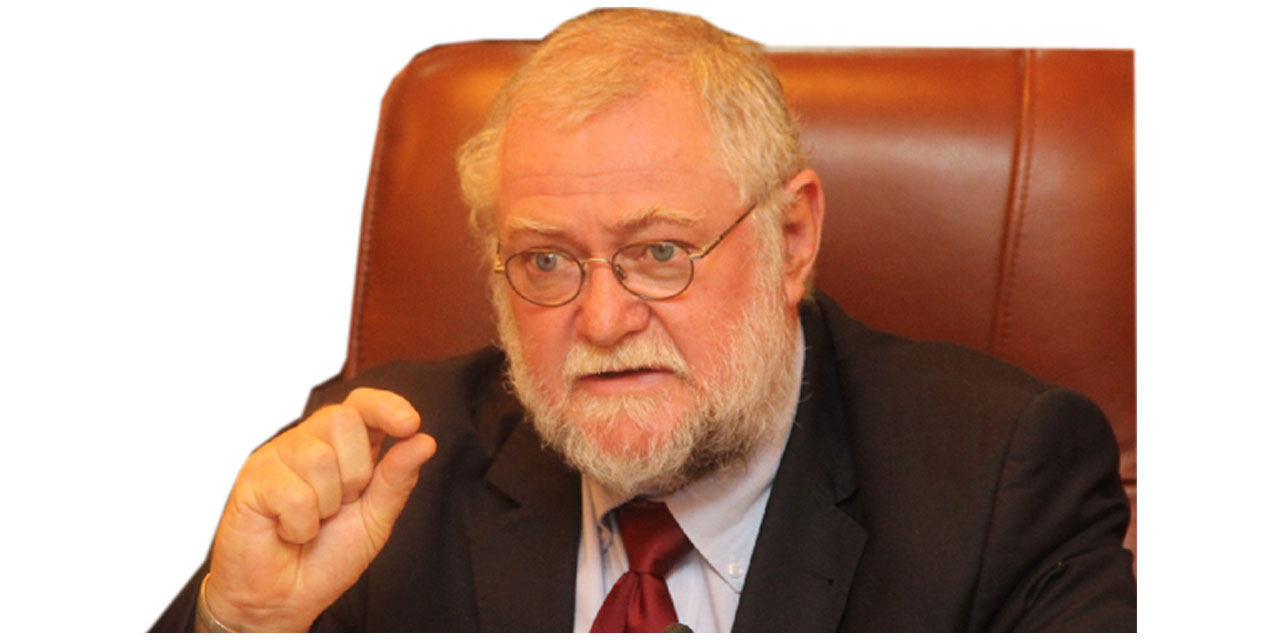Stefanus Nashama
The Minister of Agriculture, Water and Land Reform, Calle Schlettwein says Namibia has a long way to go and is not on track to eliminate open defecation by 2030, with a reduction of open defecation-free areas of only 0.4 percent recorded between 2000 to 2017.
The Minister cited the Namibia Census Mapping Basic Report of 2019 to 2021, saying 43 percent of the population is practising open defecation, helping themselves in riverbeds when nature calls.
He further cited that 23 percent of this population is urban and 65 percent of this population resides in rural areas.
He indicated that 21 percent of the population in the Khomas Region practice open defecation according to the Namibia Census Mapping Basic Report 2019 to 2021.
Schlettwein made these remarks at the celebration of the Open Defecation-Free Status of Sections of Samora Machel and Moses //Garoëb Constituencies on Saturday, in Windhoek.
“As we are all keenly aware, rapid urbanisation exacerbated by climate change, with towns and cities not being able to respond to the demands for low-cost housing, has resulted in the rapid expansion of informal settlements, with the largest in the country being in Windhoek,” the Minister stated.
Many people at informal settlements in Samora Machel and Moses //Garoëb Constituencies have no toilets, a situation that has forced many people to relieve themselves in riverbeds when nature calls.
This unhygienic practice is not recognized by the human concept and is dangerous to human lives, and can spread diseases such as cholera, diarrhea and dysentery that increase the risk of malnutrition among children.
Only a few residents have built their own toilets in these communities. It is also reported that some toilets built by residents are not safe to use at all.
Schlettwein stated that people in these communities deserve access to water, sanitation and hygiene services.
Amongst many communities in the said two constituencies, only three districts, namely Nalitungwe, Hadino Nghishongwa and Max Mutongolume have achieved the elimination of Open Defecation.
The Minister said the government knows the challenges and there is a need for serious attention and determination to find solutions to the country’s sanitation challenge.
“It is our collective responsibility to ensure that every Namibian has access to sanitation because it is dignity, and it is a human right just like access to water,” he stated.
The Minister also stated that with regard to sanitation coordination, it is worth noting that the country is not doing well.
In this regard, the Ministry of Agriculture, Water and Land Reform as a coordinating Ministry for the Sector, has embarked on practical efforts aimed at scaling up the construction of sanitation facilities countrywide, he added.
He stated that the Ministry has therefore decided to adopt a new approach to School Led Total Sanitation and Community Led Total Sanitation strategies to conform to Namibian norms and traditions.
Schlettwein revealed that Cabinet has approved the National Sanitation and Hygiene Strategy 2022 to 2027 to scale up sanitation in the country.
Samora Machel Constituency Councillor, Nestor Kalola yesterday told this publication that only some specific areas have toilets, adding that there are still other areas with hygienic and sanitation challenges where people go into riverbeds to relieve themselves.
“It is your responsibility as the media to go to these communities and see how people are living,” Kalola said.
Kalola said although the World Health Organization (WHO) in collaboration with the Ministry of Agriculture, Water and Land Reform and the Ministry of Health and Social Services is building toilets in these constituencies, the residents should still build their own toilets. The Councillor has appealed to the residents in these communities to work together, clean their areas, build toilets and stop helping themselves in riverbeds.




